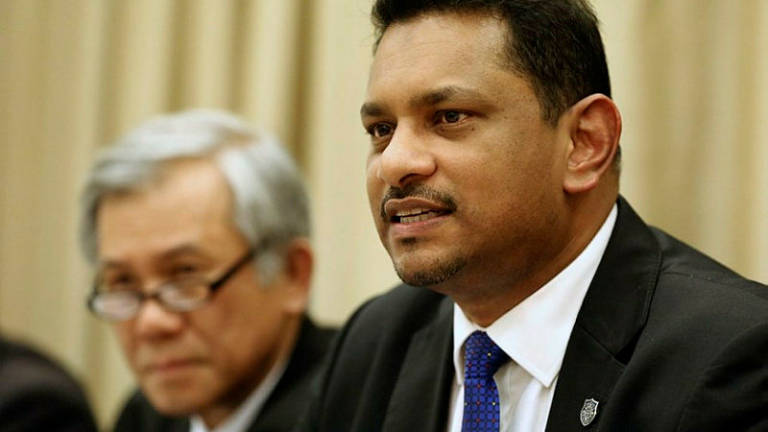PETALING JAYA: The Malaysian Bar has disagreed with former Chief Justice of the Federal Court, Tun Zaki Azmi’s call to judges to be more selective in allowing postponement of cases.
Zaki suggested that the Federal Court issue a ruling to the effect that ongoing trials “should not be held back just because of interlocutory applications by lawyers”.
An interlocutory application may well be merited, and should not be unfairly construed as merely an act intended to delay the main trial, Bar president Abdul Fareed Abdul Gafoor said today.
“Such applications are well within the rights of every litigant,” he said in a statement. “Tun Zaki’s view is unacceptable, as a main action cannot run parallel with an interlocutory application, or any appeals therefrom.
“Over the past decade, the Malaysian Bar has often reiterated that an excellent justice system requires a combination of a fair conduct of cases, their efficient disposal, and well-reasoned and well-written decisions, so as to ensure that justice is done — and is seen to be done — in all cases.”
In the administration of justice, the emphasis must be on quality and integrity over quantity, and to ensure that justice is in no instance sacrificed for speed or expediency, Abdul Fareed said.
“We recall a period of time during which the Judiciary, then helmed by Tun Zaki, was focused extensively on clearing the backlog of cases,” he said.
“This resulted in what was perceived to have been an over-emphasis on the speed of disposal of cases. The zealousness of this approach led to instances of injustice, particularly in criminal proceedings in the lower courts.
“For instance, the public might not have had the benefit of engaging counsel of their choice, given the difficulty that many lawyers had in coping with the speed of disposal of court matters.”
He said there were also instances where courts proceeded with criminal trials without the accused person being represented by counsel. Furthermore, lawyers did not have sufficient time to adequately prepare for their cases, he added.
“These situations are objectionable,” Abdul Fareed said. “The criminal justice system, in particular, requires a far more detailed and tempered approach.
“The problems faced are considerably different from those of the civil courts, and expediting hearings may not be entirely in the public interest if doing so results in more instances of flawed acquittals, or an accused is denied the right to a proper and full defence.”










